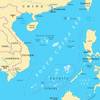EU Backs European Maritime Single Window
The European Sea Ports Organisation (ESPO) welcomes the Commission’s proposal for a Regulation establishing a European Maritime Single Window environment, stated a ESPO Secretariat.
For European ports though, reducing the administrative burden in maritime transport and facilitating trade is a top priority. ESPO wants more ambition on the harmonisation of data definitions and data sets, while maintaining the existing reporting systems, it said in a press release.
This would further reduce the administrative burden and would facilitate trade. This is the guiding principle of ESPO’s position paper in response to the Commission’s proposal for a Regulation establishing a European Maritime Single Window environment which was published on 17 May.
For European ports, the first priority should be to simplify administrative procedures by ensuring that the same data sets can be reported to each competent authority in the same way. In this context, ESPO welcomes the establishment of a harmonised data set. However, there is still work to be conducted to define the data set in detail - both data elements and data definitions.
At the same time, ESPO agrees with the proposal to allow Member States to introduce or amend data requirements as in some cases ports might need to ask additional data to respond to exceptional circumstances. In that respect, this flexibility should also be extended to individual competent authorities.
ESPO in particular welcomes that the proposal builds upon the existing National Single Windows, while also allowing the reporting to be carried out through the Port Community Systems (PCS). The proposal rightly acknowledges the well functioning of PCS’s and the investments already made. European ports highlight that any solution should be technology neutral and should focus on data harmonisation.
Furthermore, a governance mechanism for the National Single Window should be established giving it the competence to store and redistribute data to the respective authorities. Otherwise, the proposal would not result in trade facilitation and simplification, but would just shift the burden from the ship side to the competent authorities.
Finally, ESPO considers the “reporting once principle” a valid means to achieve the objectives of the proposal, provided that it covers the re-use of data that do not change between subsequent port calls and takes into consideration the limited amount of data to be reused between authorities at a given port call.
"We appreciate that the proposal acknowledges to a large extent and builds upon the current reporting environment in maritime transport. Across the sector there is a strong wish to simplify and reduce the administrative barriers. We can however not ignore the mandatory reporting obligations shipping, ports and other authorities need to comply with by national, European and international law," says ESPO’s Secretary General, Isabelle Ryckbost.
Isabelle addds: "We believe that working on harmonised data standards is the only way forward to make the reporting more efficient. Common standards are far more important than harmonised systems. Technology is moving fast. We need a legislative framework that allows the use of already well functioning systems and the uptake of new technologies. A reporting environment should not undermine the ongoing digitalisation processes, and encourage the uptake of new solutions in a technology neutral way,” says ESPO’s Secretary General, Isabelle Ryckbost.
The proposal is currently being discussed in the Council and the European Parliament. MEP Deirdre Clune (Ireland/PPE) has been appointed as rapporteur in the Transport committee.
ESPO looks forward to working with the Parliament’s rapporteurs and the shadow rapporteurs, the Austrian Presidency, the Council and the Commission in view of achieving a new and efficient legislative framework that would further reduce the administrative burden in maritime transport and facilitate trade.






